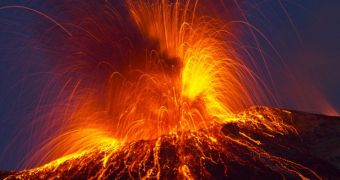A paper published in yesterday's issue of the journal Nature Geoscience argues that volcanic activity could be partly to thank for the slowdown in global warming documented in recent years.
More precisely, researchers claim that, according to their investigations into the matter at hand, volcanic eruptions account for some 15% of the so-called global warming pause recorded starting with the year 1998.
In their paper, the scientists who took part in this study detail that, between the years 1970 and 1998, global average temperatures increased by roughly 0.31 degrees Fahrenheit (0.17 degrees Celsius) per decade.
However, between 1998 and 2012, the average rate of warming was documented to be one of just 0.072 degrees Fahrenheit (0.04 degrees Celsius), Live Science reports.
Interestingly enough, this happened despite the fact that the Intergovernmental Panel on Climate Change expected global average temperatures to continue to up at a fairly rapid pace.
By the looks of it, this slowdown in global warming was partly brought about by a series of 17 small volcanic eruptions that took place starting with the year 2000, the same source tells us.
Thus, these eruptions are said to have released significant amounts of aerosols, i.e. fine, airborne particles, into our planet's atmosphere.
These particles helped scatter some of the sun energy bound to reach our planet. By doing so, they cooled the Earth to a considerable extent, the researchers write in the journal Nature Geoscience.
Besides, aerosols appear to have also reduced global troposphere temperatures, the specialists add.
“Part of the lack of the increase in warming for the last 15 years may be due to the cooling effect of volcanoes,” says Céline Bonfils, study co-author and climate scientist with the Lawrence Livermore National Laboratory in California.
“We see a statistically significant correlation with not only temperature, but reflected sunlight – which are both independent measures,” adds specialist Mark Zelinka.

 14 DAY TRIAL //
14 DAY TRIAL //